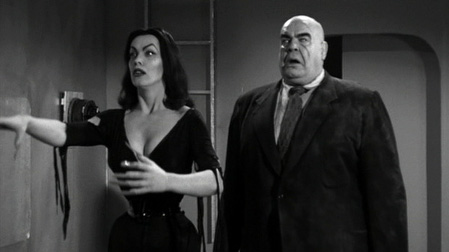To Centralize or Decentralize, That Is NOT the Question
NEW YORK—In my many years at the Peacock network, and during my subsequent consulting career, I witnessed a great number of reorganizations. During the early GE/NBC years they were happening so frequently that the HR teams did not even have time to make new org charts. One enterprising junior person created what became their semi-world famous “Plan 9 from Outer Space” (named after the 1959 sci-fi horror film). I believe it went through 17 editions, but always ended up being eerily accurate.

Inevitably, these reorgs were always about saving money, but one theme seemed to permeate them—the need to centralize, or later, decentralize, services and accountability. The centralize camp always argued “economy of scale” and “accountability!” The decentralize factions argued for “more accountability to the customer!” The result of this push-pull would be a seemingly endless cycle of centralization then decentralization (on a personal note, I lived through three round trips—the next one is free!).
PROCESS OVER RESULTS?
One thing I never saw was the benefit of these cycles. Centralization carries the potential for process consistency, which brings with it the possibilities of enhanced reliability, lower costs, or even outsourcing. Centralized teams tend to be very good at adhering to rules and measuring their own outcomes. In these days of industrial espionage, hacking, and denial of service attacks, a centralized security team is critical to the operation of many companies. We would not, for example, want to see significant firewall policy changes without a security review. On the downside, centralized organizations tend to reward process over results, making it easy for them to be disconnected from the company’s final product. One thing is clear: organizations that are 100 percent centralized tend to become process bound and impossible to work with.
Television is a creative medium. Decentralization enables operational elements to foster closer ties to the actual air product. That’s why production teams are generally assigned by show, not as a central pool. It encourages investment in changes that will improve the experience for the consumer. Yet while putting responsibility closer to the edge enhances innovation and creative risk taking, it can sometimes create the appearance of a wild-west mentality or result in duplication of efforts, things that are typically anathema to corporate thinking. In addition, cross-business efforts become more challenging under a decentralized approach since there is little incentive or momentum to encourage pollination.
CROSS FUNCTIONAL KNOWLEDGE
Why do I bring up these lovely memories now? Nostalgia? Not really. Since leaving NBC, I’ve worked with dozens of organizations who all struggle with this balance. Last October, I wrote about the need for technical organizations to think of IP as a tool and not a department. Engineering teams must have cross functional knowledge to be able to execute in today’s multi-distribution, IP routing world. This is of significant importance now as we embrace the trends of content on demand and network-based infrastructures.
I’ve seen centralized network teams who act like stern guardians at the gate barring entry to anything that looks suspiciously like forward progress. TV stations and departments are unable to execute on creative ideas because their hands are tied by centralized bureaucrats. Yet I’ve also seen great centralized teams that are sympathetic and supportive to the needs of the divisions they serve. Sometimes this comes down to good staffing—just the right people in just the right places. More often it is the result of intelligent process that systemically encourages responsiveness under the dictates of a well thought out SLA (Service Level Agreement).
So, without further ado, here are Thaler’s five laws of centralization for broadcast production:
1.Only centralize what can be measured;
2.Never centralize administration when the opportunity exists to disburse responsibility with an enforceable policy;
3.Centralized organizations must be accountable to the divisions they serve. If they think of the divisions as customers, then they’ve got the right mentality;
4.SLAs: if the defined Service Level (response time) is not good enough to support live broadcast, you should rethink centralizing the service, or improve the SLA;
5.and finally, Any centralized process that is unreasonable or unaccountable will eventually be subverted.
The simple fact is that the best solution is not centralization or decentralization, but rather well thought out organization that balances the need to create efficiencies with the needs to support innovation and a creative environment. The move to the IP/UHDTV/OTT future is a unique opportunity to rethink our assumptions and achieve the correct balance.
Larry Thaler is the president of Positive Flux, a New York-based media consulting firm.
Get the TV Tech Newsletter
The professional video industry's #1 source for news, trends and product and tech information. Sign up below.
